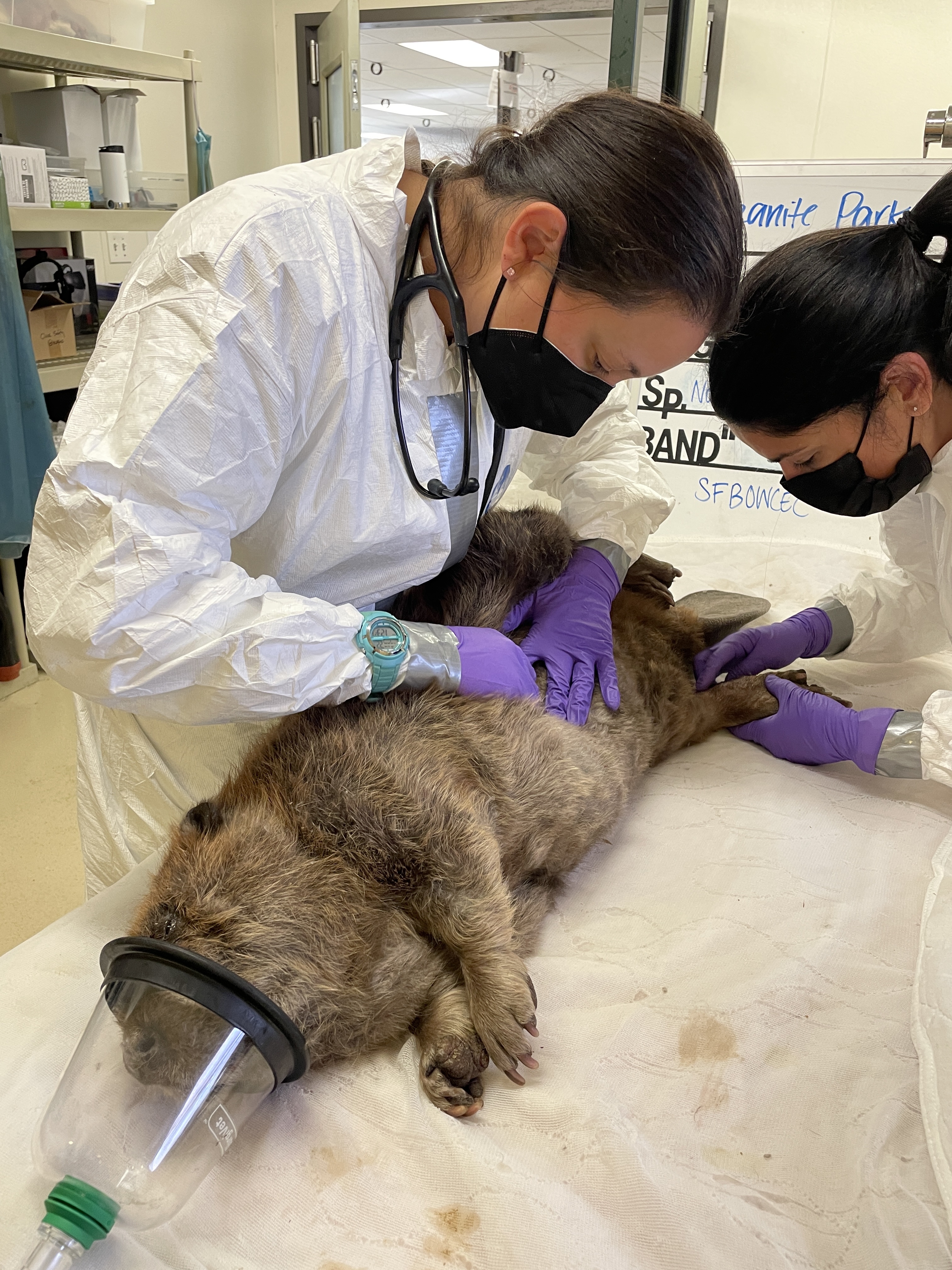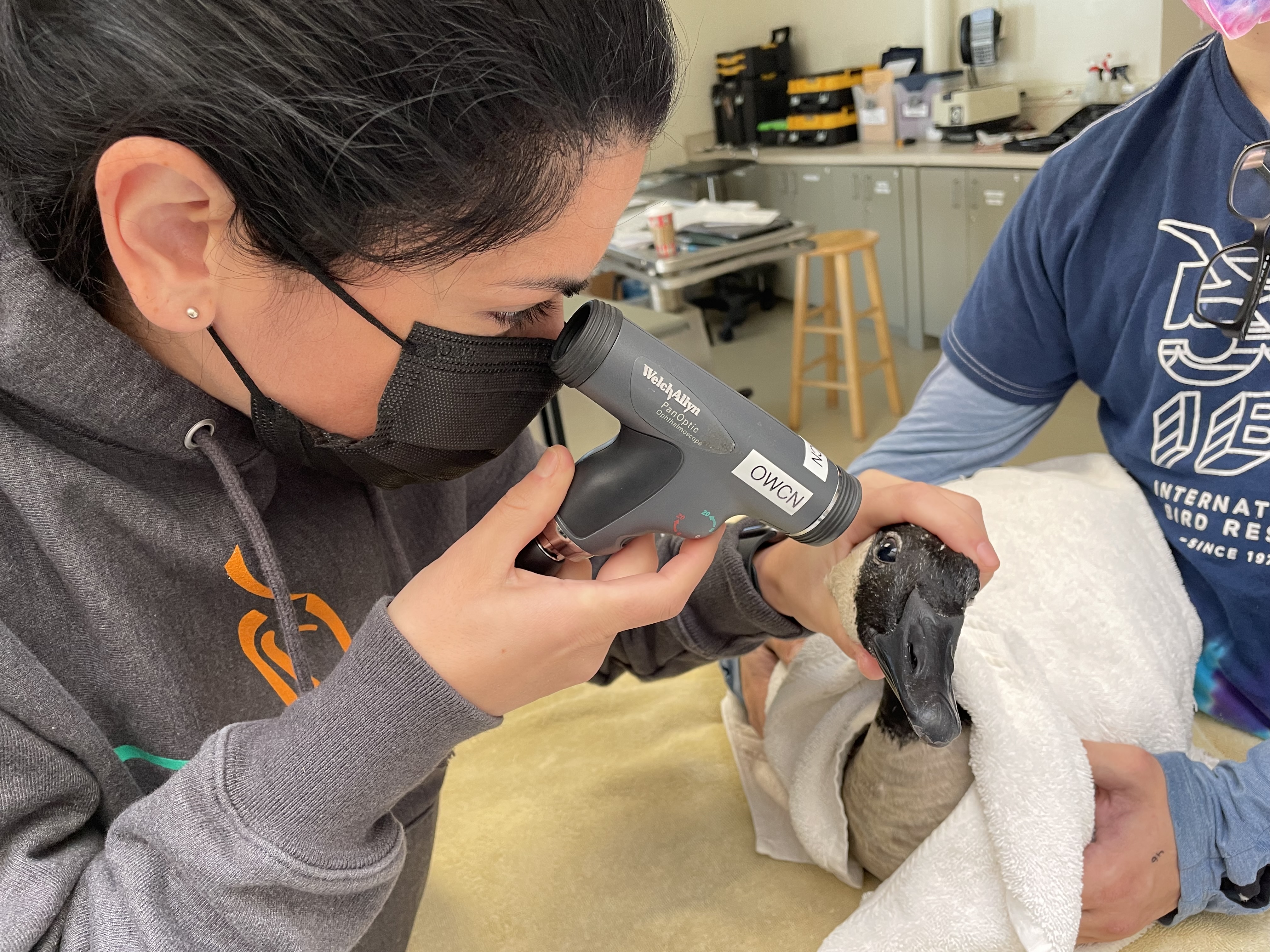
Our Very First Oiled Wildlife Veterinary Training
On December 6th, 2023, we held our very first Oiled Wildlife Veterinarian (OWV) training. The OWV was added to our training program as a spin-off of the Basic Responder Training (BRT), but geared specifically towards veterinarians in our Network. This course was three years in the making (postponed two years in a row due to oil spills) and took the efforts of our entire Management Team. A special shout out goes to Duane Tom for creating a huge portion of this training!

This course, much like the BRT, still gives a basic overview of oiled wildlife response, covering topics such as the structure and flow of animal care during an oil spill response within an Incident Command System, human health and safety, and facility requirements for oil spill response, but is also designed to give a more in-depth veterinary view, diving further into the effects of oil on wildlife, clinical presentations, and medical management and rehabilitation of California wildlife species affected by oil. Participants learn stabilization theory, intake examination and common presentations, anesthetic considerations for the wash procedure, and common medical issues during the conditioning process. You can check out the learning objectives here:
- Understand the role of the Oiled Wildlife Care Network (OWCN) in oiled wildlife response, the role of OWCN veterinarians, and how to work within the ICS system
- Be familiar with the clinical presentation of oil-affected wildlife and the secondary medical sequelae to look for and treat
- Understand oiled wildlife recovery techniques and the secondary complications that may occur during recovery and require medical intervention
- Understand the importance of field and pre-wash stabilization periods as well as stabilization techniques for oil-affected wildlife
- Be able to work through case examples of oiled wildlife to determine problem list and stabilization and transport plan
- Recognize hazards in spill response as well as methods to prevent and mitigate such hazards
- Be familiar with triage, oiling assessment and sample collection techniques
- Understand the intake exam process for various species of oil-affected wildlife and be comfortable creating an initial treatment plan
- Understand how enclosure design, infectious disease protocols, and nutrition play an important role in treatment (and prevention of secondary issues) in the oil-affected wildlife patient
- Understand the cleaning (wash & rinse) process and potential complications, and be able to discuss the anesthetic considerations for the cleaning procedure
- Be familiar with the progress an oil-affected patient should make during the conditioning phase and be able to discuss release criteria for various species
An exciting bonus was that we were able to get this program RACE approved for 5 hours of continuing education. California veterinarians must complete 36 hours of continuing education every 2 years to maintain their licenses, so having this course count towards their licensing requirements was huge in getting our veterinarians the justified time they needed to gain knowledge on this important topic and prepare themselves for responding as an Oiled Wildlife Veterinarian!
The 6.5-hour virtual course was well-received and folks were left asking for more. Here are a few of the comments from the after-course evaluations:
I enjoyed the overall experience very much! It was great networking with other veterinarians in the field.
I think the training was an awesome opportunity to learn more about the OWCN and oil spill response. I almost feel like the training could have been even longer (2 days).

This was a great training! I appreciate the opportunity to have joined the training and look forward to additional trainings in the future. I would love if there could be trainings (even if 0.5 or 1 day trainings) every 6 months to be able to keep all of this useful information fresh in our minds!
I enjoyed the breakout rooms and would have liked to spend more time there on clinical experiences, cases, etc.

It was an outstanding general review and a great opportunity to learn current thinking about veterinary aspects of oil spill response.
Y’all rock! We member orgs are so lucky and appreciative of your organization. Thank you for taking the time to create this training and spending your day with us!

So what’s next? We are working on updating the OWV training based on the feedback and will announce the 2024 training date soon! Please keep in mind that at this time, we are targeting certain regions for training and class size is limited, so this course is by invitation-only. But feel free to reach out with any questions or to let us know you’re interested!

Lorraine
